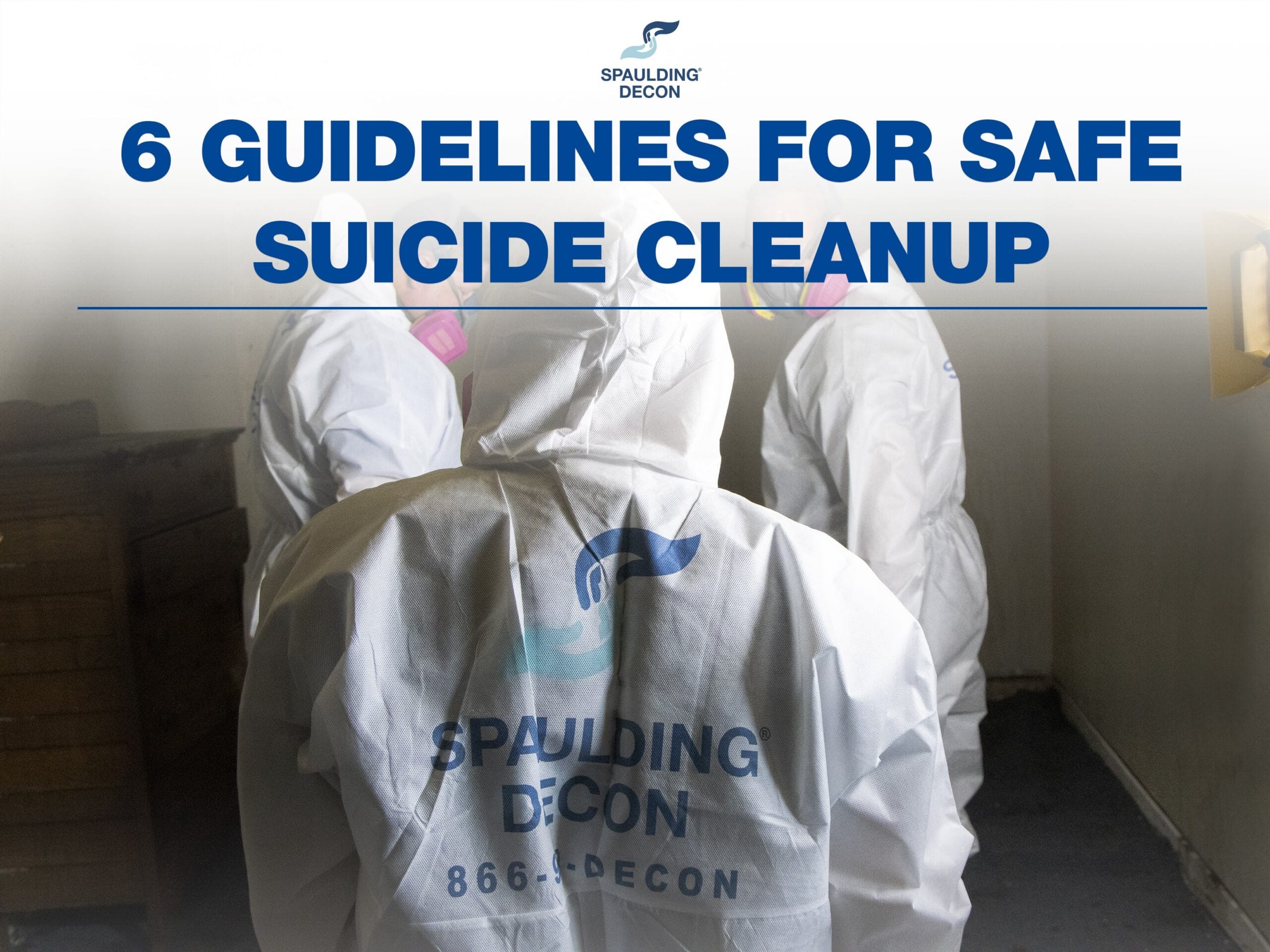Dealing with the Effects of a Recent Suicide
Losing a loved one to suicide is an experience no one should have to endure. The trauma that suicide leaves is devastating and incredibly daunting. To understand the broader effects of suicide on family, including emotional, social, and financial impacts, explore our detailed guide. According to the CDC, suicide was a leading cause of death in the US in 2020 and affects all ages.
During traumatic moments such as these, it is unfathomable to consider that you might have to end up cleaning the remains of a loved one. Luckily, there are experts that can take this burden from the family members of the victims and help them get back to grieving and healing peacefully.
Who must clean up the remains of a loved one who has committed suicide?
You would be surprised to learn that law enforcement does not clean up remains after a suicide or homicide. Then who does clean up postmortem remains, you might ask. There are professionals you can call to do this kind of daunting task, such as Spaulding Decon. Spaulding Decon are trained, equipped professionals ready to help individuals through the grieving process.
Spaulding Decon leaves the home without a trace of evidence that anything awful has happened. We take pride in giving back some of the peace that may have been lost and they are a resource you can depend on. No family member should have to pick up the remains of a loved one and Spaulding Decon wants to alleviate that grief by helping with the cleanup.
Cleaning up Hazardous Materials due to Decomposition
As if the trauma of losing a loved one to suicide was not difficult enough, the last thing someone should have to consider are the hazards that come with cleaning up the scene of the incident. The body begins to break down then blood, tissue, and organs begin to liquify. The condition of the body depends on the state of postmortem and environmental conditions.
Cleaning biohazard (hazardous bodily fluids) requires precision and multiple safety measures. Here are some guidelines one must follow to clean up bodily fluids safely.
The 6-Guidelines for Safe Cleanup of a Suicide
First and foremost, contact authorities. Law enforcement needs to be dispatched to the scene of the incident prior to anything being touched, cleaned, or examined. The American Foundation for Suicide Prevention states that because a suicide is not a natural cause of death, authorities do need to be contacted immediately as they will do a thorough investigation and determine if there was any foul play. You can learn more about the reasons authorities are contacted after a suicide on https://afsp.org/practical-information-for-immediately-after-a-loss.
Wearing protective gear is critical as it can keep you safe from becoming contaminated with any blood related illnesses, such as HIV, Hepatitis or any others that are transmitted through contact with blood. One should don disposable gloves, safety shoes, protective goggles, and a coverall suit to protect the clothing, and a respirator. Taking the proper precautions is critical. Therefore, hiring professionals, such as Spaulding Decon, to do the job is the best course of action.
Disposal of biohazard material is a step you must not waiver on as you cannot dispose of biohazard materials in just any trash bag or the ordinary garbage containers. Using biohazard waste bags and containers will ensure the waste material does not leak. Mark your bio bag with key words such as BIOHAZARD to let others know the material inside is contaminated.
It is important to use the right cleaning agents for suicide clean up. Once the body matter has been collected and put into disposable biohazard bags, you can begin cleaning the scene. Make sure you are using a safe cleaning solution that is not mixed with other cleaning chemicals. Make sure you read and follow the directions on the label. Do not forget to wear your respirator during this process. Suicide clean up companies like Spaulding Decon take care of waste collection, disposal, and are extremely thorough with clean up. They even remove carpets, tile, and any surface where blood or fluids have seeped through.
Decontaminating supplies and materials used to clean up the scene is a critical step. Anything used to clean the scene of the suicide or incident including supplies, materials, and equipment needs to be decontaminated post-usage. Mops, brooms, rags, sponges, scrubbing brushes, and all material used to clean must be sanitized and left to air dry so that the cleaning solution can fully do its job.
Ensure you were not exposed to biohazardous material and if you were, immediately seek medical attention. If you encounter blood from the scene or other biohazard fluids, you will want to wash the areas with soap and water immediately and go to a doctor as you could have come into contact with bacteria and other contaminated material present in blood and biohazards.
Dealing with Traumatic Events and Deaths
Once all your 6 steps have been completed, make sure you set aside some time to grieve and to heal. Self-care is especially important, and grief takes time. Visit afsp.org/loss for steps on how to grieve suicide. Experiencing suicide is a traumatic experience. Cleaning the scene is never something a grieving family member should have to do. Spaulding Decon cleans suicides and biohazard. They clean with care and empathy.
Spaulding Decon leaves the property in the very condition it was prior to the suicide and sometimes, even better than it was before. They are here to help you during your challenging time. Spaulding Decon are the last responders. Learn more about local suicide clean up services.
If you or someone you know is contemplating suicide, please contact the National Suicide Prevention Lifeline at 1-800-273-8255 or https://suicidepreventionlifeline.org/
eBook – What To Do When Police Leave
There are so many misconceptions about law enforcements role when it comes to crime scenes and investigations. When law enforcement is called their sole responsibility is to collect evidence, interview witnesses, and solve a crime. There is no thought whatsoever to the cleanup or restoration to your home. Learn more in this free eBook by Spaulding Decon.





